“Working together is success.”
– Henry Ford
Your container is it’s own enclosed world. All the plants living in it have to share space and resources with each other, and it is impossible to make more room. Your unassuming flowers are each working hard to get as much sunlight, water, nutrients, and space as they can to grow. It is the product of millions of years of evolution and adapting.
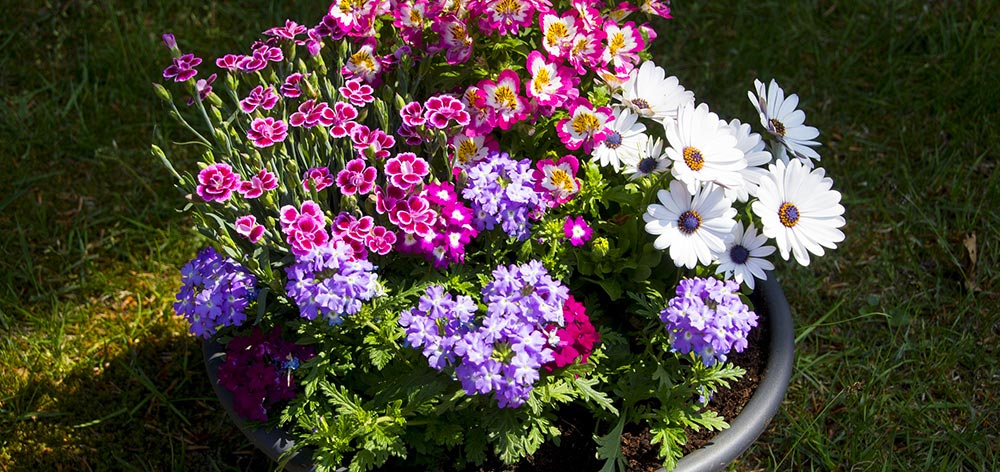
Gladiator Garden:
We love our container gardens for their beauty and fun colors, but our plants see things a little differently. With only so many resources to go around, the container becomes a gladiator pit. Only the strong will make it. Whichever plant grows the fastest will spread its leaves to get more sun, grow its roots thicker, and bloom faster.
Compatibility is important for your containers. If you pitted a tiny, 90-pound gladiator against a 280-pound Goliath, you could hardly expect a fair fight. Similarly, your aggressive plants could make quick work of a meeker container partner. You’d be throwing away money, and your container design would look different than you wanted it to. Match your plants equally, and your container will grow together. If they are all close in competition, their fight for survival will make your container even more beautiful, instead of one-sided.
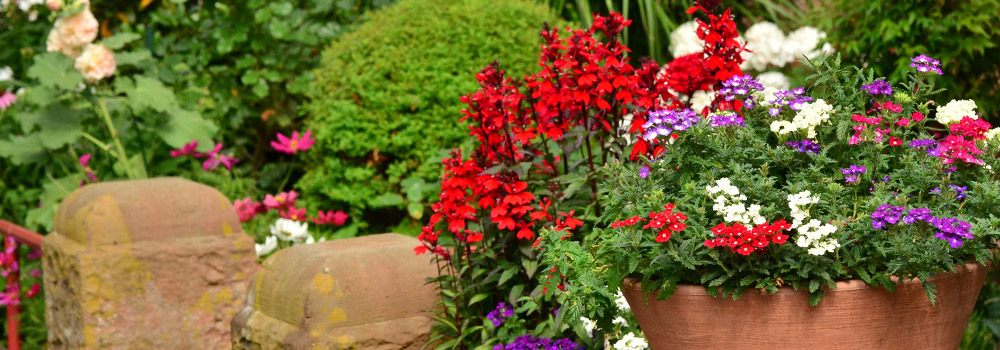
Growing Behavior:
Plants can be categorized into growing types to make it easy to find good matches for your plants. You can usually get away with pairing the moderate, assertive plants with either aggressive or passive plants. Just keep some scissors on hand to rescue the slow growers. However, if you try to pair the two extremes together, you might end up taking on a battle you can’t win.
- Aggressive Plants: This group of plants is downright imperialistic. They know what they want and will certainly work hard to get it. This includes a lot of the very popular, fast-growing annuals designed for containers in the last decade, like Supertunias. Annual and tropical vines, as well as grasses, are also notoriously aggressive growers.
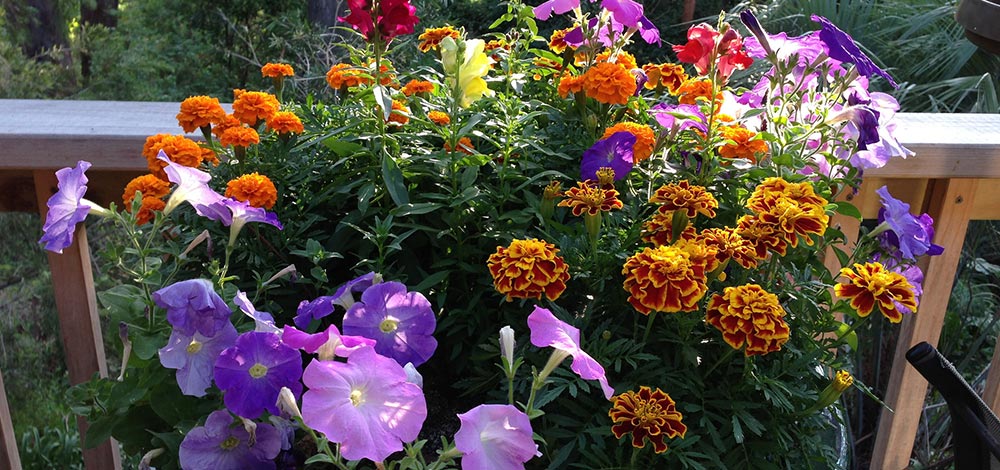
- Assertive Plants: These plants certainly aren’t mild-mannered, but they aren’t setting out to conquer the world, either. Left unsupervised with an aggressive plant, they’ll be overwhelmed eventually. On the other hand, they will do the same to muscle passive plants out of their way. Some classic container plants belong in this category, like petunias, alyssum, and pansies. These are great, moderate plants for an old-fashioned feel. Most perennials, herbs, and edible plants are assertive growers as well.
- Passive Plants:
These plants are the tortoises of containers: slow and steady. They usually grow slowly or barely at all. This isn’t the usual assortment of container plants. As houseplants and others make their way outside, you get a unique container look. These plants tend to cost more but will keep year-to-year if brought inside when the temperature drops for the winter. These plants come with a wide variety of selection. Cacti and succulents are popular slow-growers, along with houseplants, like crotons, orchids, and bromeliads. Popular terrarium plants, like ferns and pileas, are also favorites.
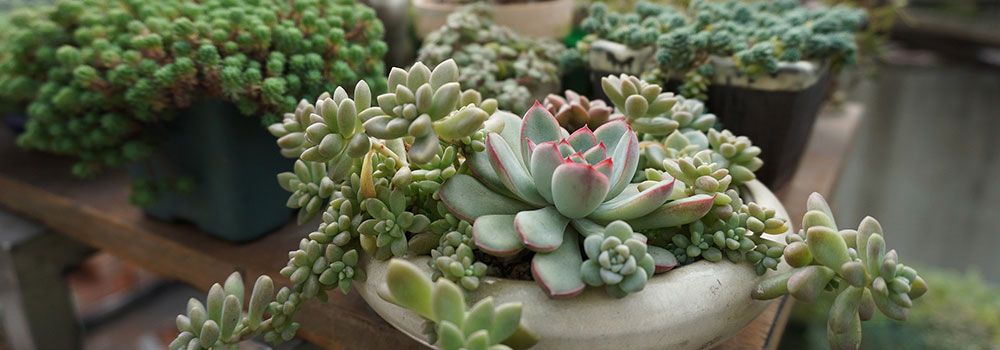
All this talk about plants battling it out doesn’t have to be entirely doom and gloom. Pairing up plants that will get along is simple with these categories, and you can always keep the scissors nearby for rescue missions. While bullying can happen, matching the right plants together makes your container look more spectacular!


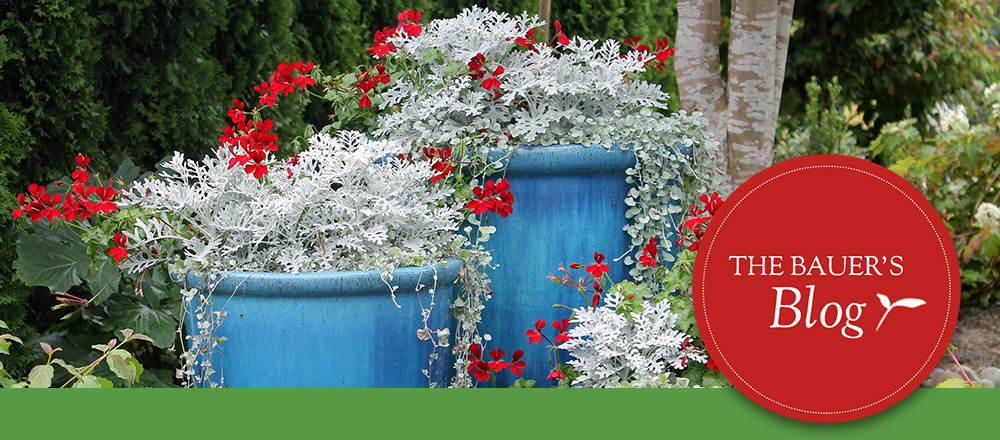



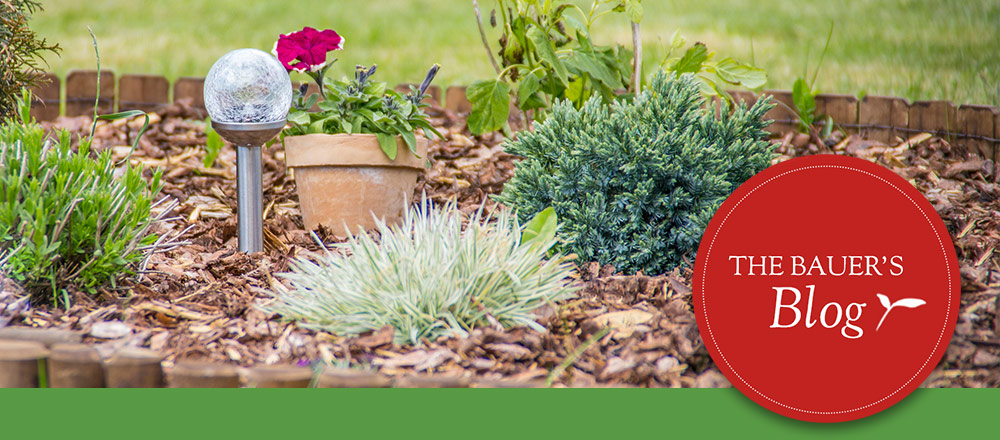
Any fireside apples for sale
It is not currently apple season in our area and since Bauer’s only carries locally grown apples, there are no apples available at this stime. We’ll have apples again mid-July with Paula Red, Duchess, and other early season varieties. Fireside apples are ready about mid-September in the region. If you’d like us to, we could give you a call when Fireside are available – please email your phone contact to Info@BauersMarketPlace.com if you’d like us to contact you come fall.
Call me when Fireside apples come in…. PLEASE
you know where to reach me!
Love Ya
Chell